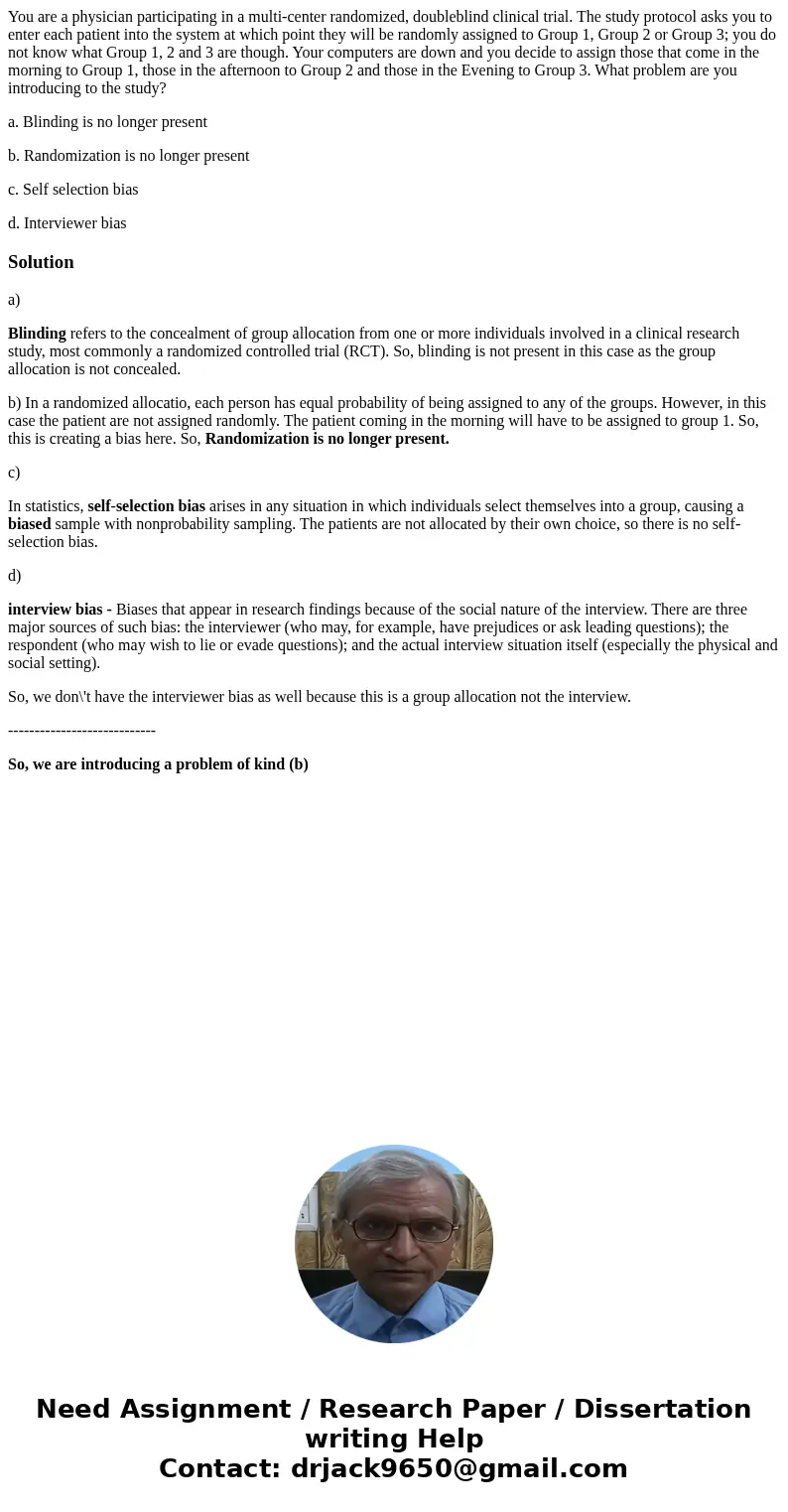You are a physician participating in a multicenter randomize
You are a physician participating in a multi-center randomized, doubleblind clinical trial. The study protocol asks you to enter each patient into the system at which point they will be randomly assigned to Group 1, Group 2 or Group 3; you do not know what Group 1, 2 and 3 are though. Your computers are down and you decide to assign those that come in the morning to Group 1, those in the afternoon to Group 2 and those in the Evening to Group 3. What problem are you introducing to the study?
a. Blinding is no longer present
b. Randomization is no longer present
c. Self selection bias
d. Interviewer bias
Solution
a)
Blinding refers to the concealment of group allocation from one or more individuals involved in a clinical research study, most commonly a randomized controlled trial (RCT). So, blinding is not present in this case as the group allocation is not concealed.
b) In a randomized allocatio, each person has equal probability of being assigned to any of the groups. However, in this case the patient are not assigned randomly. The patient coming in the morning will have to be assigned to group 1. So, this is creating a bias here. So, Randomization is no longer present.
c)
In statistics, self-selection bias arises in any situation in which individuals select themselves into a group, causing a biased sample with nonprobability sampling. The patients are not allocated by their own choice, so there is no self-selection bias.
d)
interview bias - Biases that appear in research findings because of the social nature of the interview. There are three major sources of such bias: the interviewer (who may, for example, have prejudices or ask leading questions); the respondent (who may wish to lie or evade questions); and the actual interview situation itself (especially the physical and social setting).
So, we don\'t have the interviewer bias as well because this is a group allocation not the interview.
----------------------------
So, we are introducing a problem of kind (b)

 Homework Sourse
Homework Sourse